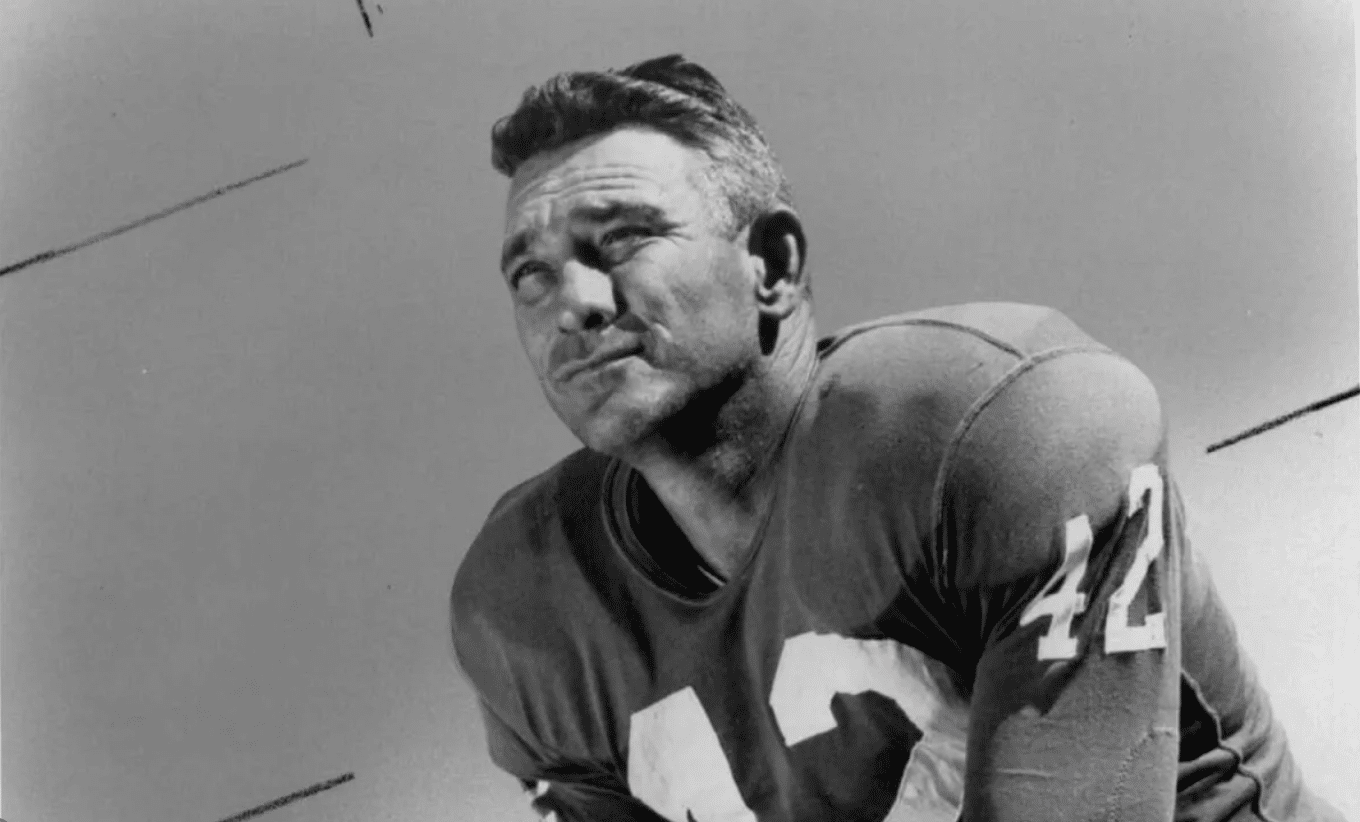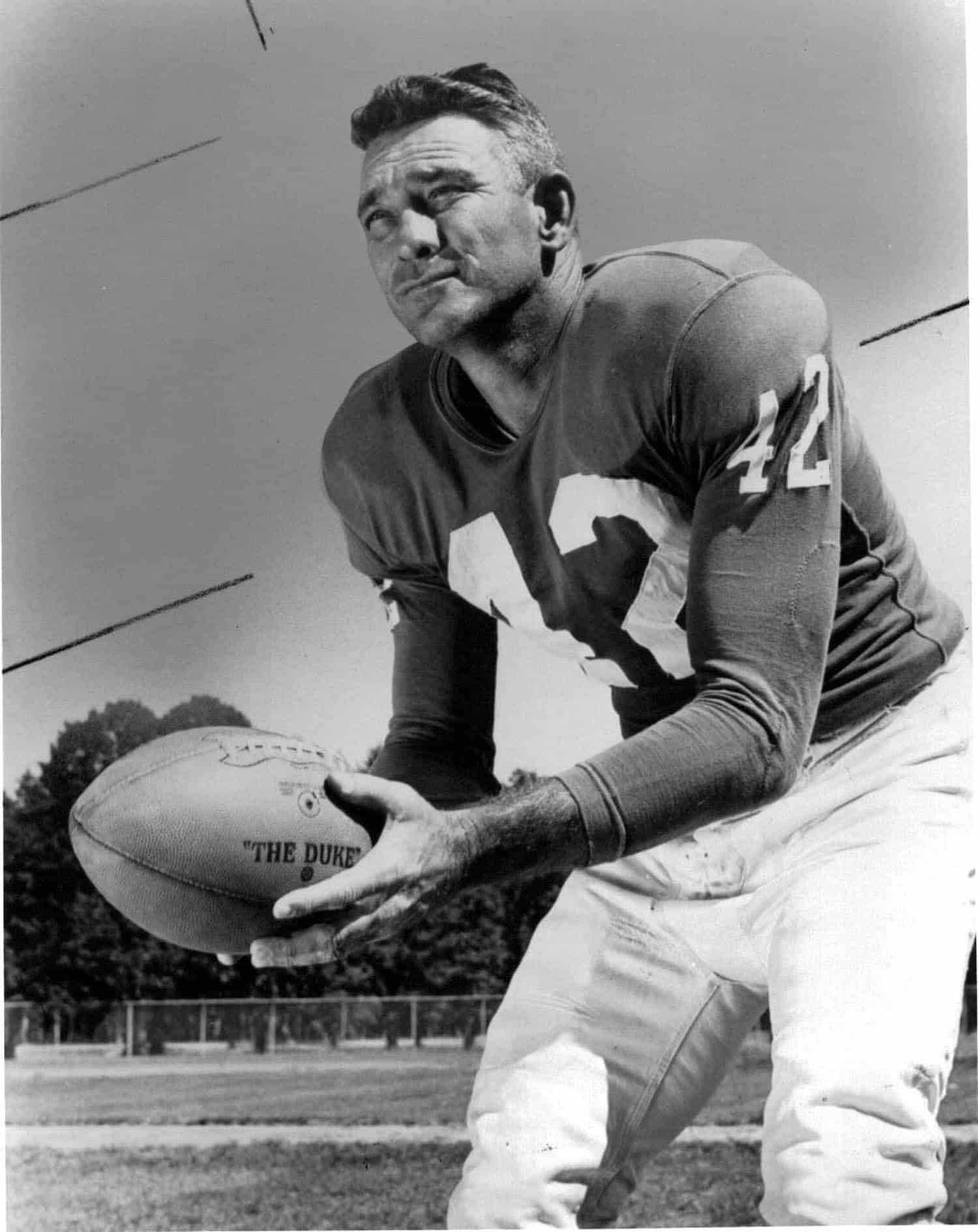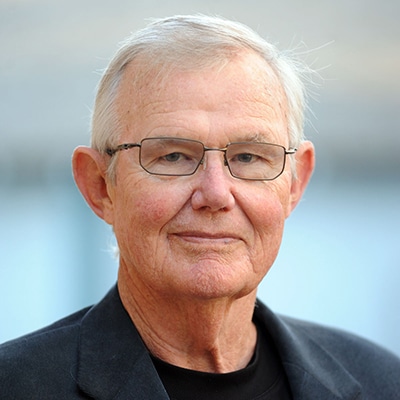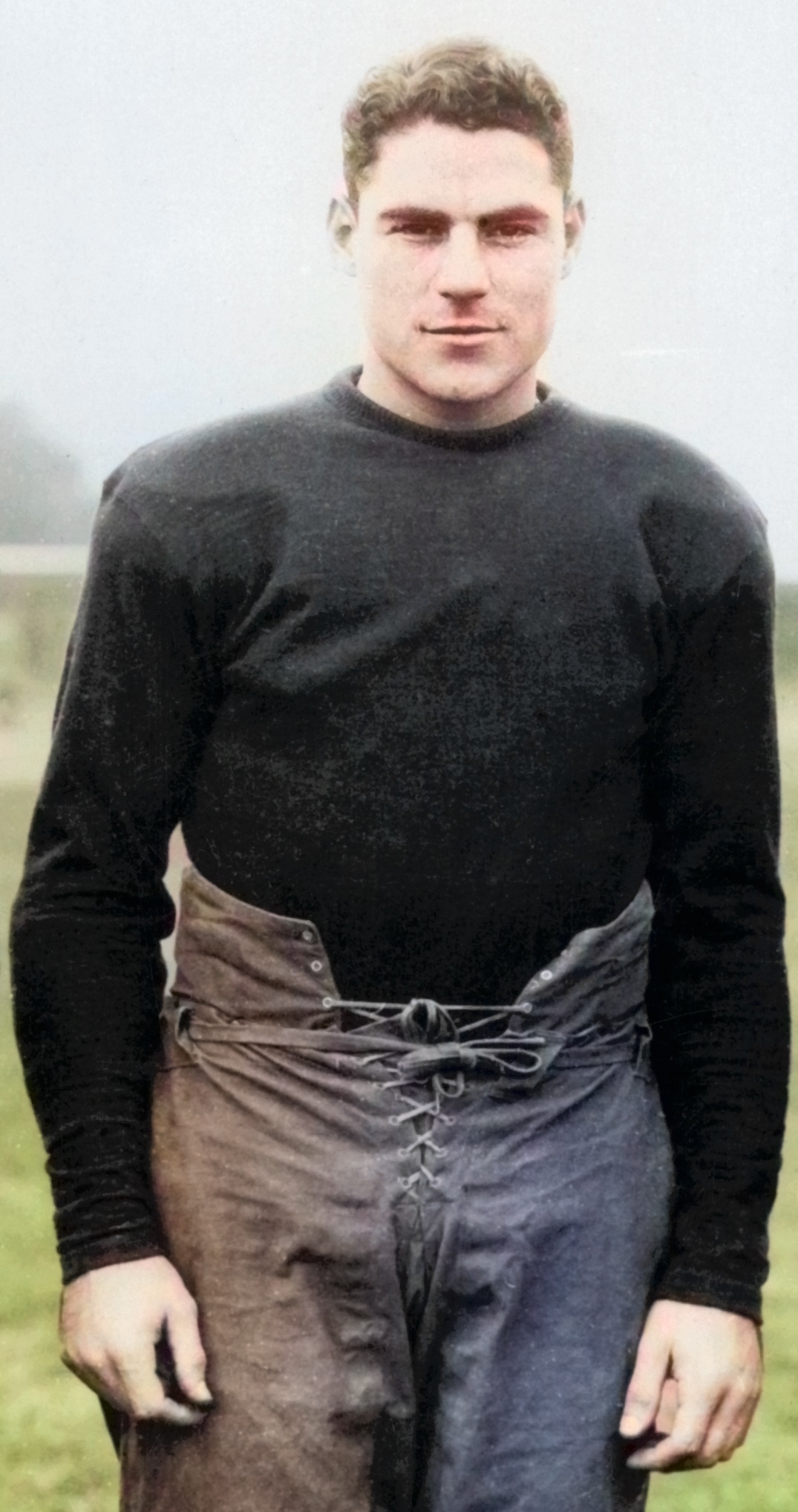Mississippi Today
64 years later, Chunkin’ Charlie still holds state’s best NFL passer rating


Brett Favre famously won three NFL MVP trophies. Eli Manning was a Super Bowl MVP, twice, beating Tom Brady both times. Steve McNair was once a co-NFL MVP with Peyton Manning. Archie Manning once led the NFC in passing yardage, playing for a 7-9 team. Dak Prescott has put some of the best passing numbers in pro football often in recent years.
You probably knew all that or at least most of it. Mississippi’s professional quarterbacks have done some stuff.
But do you know what player holds the highest single season passer rating among Mississippi’s professional quarterbacks? You might be surprised.
That quarterback would be none other than Chunkin’ Charlie Conerly of Clarksdale and Ole Miss. It’s not even close. Playing for the New York Giants in 1959, Conerly had a passer rating of 135, higher than Favre in any of his MVP seasons. All the more amazing, Conerly was 38 years old when he achieved that remarkable season, averaging 9 yards per passing attempt and 15 yards per completion. For comparison, 2022 MVP Patrick Mahomes averaged 8.1 yards per attempt and 12 yards per completion. It goes without saying how much more wide open and productive NFL offenses are now, compared to when Conerly played.

Not surprisingly, Conerly was the NFL MVP in ’59, 11 years after he was pro football’s Rookie of the Year in 1948. Unbelievably, Conerly was never selected for the Pro Football Hall of Fame — a travesty, and one that should be corrected.
Conerly’s feat was just one of the surprising facts author/publisher Neil White and I uncovered while doing research for “The Mississippi Football Book.” There were lots more.

For instance, I always thought Ole Miss’s Frank “Bruiser” Kinard was Mississippi’s first consensus All American player. Not so. Six years before the great Bruiser was an All American at Ole Miss in 1936, a young man named Marchmont “Marchie” Schwartz of Bay St. Louis and Saint Stanislaus was twice an All American playing for the legendary Knute Rockne at Notre Dame. Marchie Schwartz, a running back, helped the Fighting Irish to a 25-2-1 record over three seasons, during which the team won two national championships. In 1930, he averaged 7.5 yards per carry. He later coached at several schools, including Notre Dame and Stanford and is a deserving member of the College Football Hall of Fame.
Care to guess which Mississippi university had the highest winning percentage all-time coming into this season? Ole Miss, you say. No, Jackson State is first, having won 59.3 percent of its games. Southern Miss is second at 57.4, with Ole Miss third at 56 percent.
But that’s far from Jackson State’s greatest claim to fame. For instance, the JSU Tigers have placed four greats — Lem Barney, Walter Payton, Bob Brazile and Jackie Slater — in the Pro Football Hall of Fame. That’s as many as Ole Miss (2), Southern Miss (2) and Mississippi State (0) combined. It’s twice as many as Auburn.
Since our book came out, I’ve asked dozens of Magnolia State football fans this question: Who is the only native Mississippian to win the Heisman Trophy? Invariably, the answer has been Doc Blanchard, the Army great who played his high school ball at Saint Stanislaus. Blanchard did win the Heisman in 1945. But here’s the catch: Blanchard was a South Carolina native who was a boarding student at Saint Stanislaus. No, the first and thus far only native Mississippian to win the Heisman was – drum roll, please – Philadelphia and Neshoba County native Billy Cannon in 1959. And Cannon secured college football’s top individual honor with his 89-yard punt return against Ole Miss, spoiling an otherwise perfect Ole Miss record and keeping the Rebels from winning every version of the national championship that year.
The great Lance Alworth of Brookhaven, Arkansas and pro football fame is surely one the greatest ever from this state. He famously earned the nickname “Bambi,” but do you know where he got that nickname? Charlie Flowers, the Ole Miss great who might have won the Heisman in 1959 if not for Cannon’s punt return, and Alworth were later teammates with the San Diego Chargers. One day when they were walking off the practice field, Flowers stopped Alworth and told him: “You’re Bambi.”
“What for?” Alworth asked him.
“Because of those big brown eyes and because of the way you move,” Flowers answered. Bambi stuck.
“The Mississippi Football Book” tells the stories of the greatest players, coaches, teams and games in this state’s rich football history. Much of it I knew from 58 years of reporting and writing about Mississippi football. But some of it, quite a bit actually, I did not.
Rick Cleveland and Neil White will sign “The Mississippi Football Book” on Friday afternoon, Oct. 27, at Off Square Books in Oxford beginning at 5:30 p.m. They will be at Lemuria in Jackson on Nov. 17 at 4:30 p.m. with a program at 5 p.m.
This article first appeared on Mississippi Today and is republished here under a Creative Commons license.
Mississippi Today
1964: Mississippi Freedom Democratic Party was formed
April 26, 1964

Civil rights activists started the Mississippi Freedom Democratic Party to challenge the state’s all-white regular delegation to the Democratic National Convention.
The regulars had already adopted this resolution: “We oppose, condemn and deplore the Civil Rights Act of 1964 … We believe in separation of the races in all phases of our society. It is our belief that the separation of the races is necessary for the peace and tranquility of all the people of Mississippi, and the continuing good relationship which has existed over the years.”
In reality, Black Mississippians had been victims of intimidation, harassment and violence for daring to try and vote as well as laws passed to disenfranchise them. As a result, by 1964, only 6% of Black Mississippians were permitted to vote. A year earlier, activists had run a mock election in which thousands of Black Mississippians showed they would vote if given an opportunity.
In August 1964, the Freedom Party decided to challenge the all-white delegation, saying they had been illegally elected in a segregated process and had no intention of supporting President Lyndon B. Johnson in the November election.
The prediction proved true, with white Mississippi Democrats overwhelmingly supporting Republican candidate Barry Goldwater, who opposed the Civil Rights Act. While the activists fell short of replacing the regulars, their courageous stand led to changes in both parties.
This article first appeared on Mississippi Today and is republished here under a Creative Commons Attribution-NoDerivatives 4.0 International License.![]()
Mississippi Today
Mississippi River flooding Vicksburg, expected to crest on Monday
Warren County Emergency Management Director John Elfer said Friday floodwaters from the Mississippi River, which have reached homes in and around Vicksburg, will likely persist until early May. Elfer estimated there areabout 15 to 20 roads underwater in the area.
“We’re about half a foot (on the river gauge) from a major flood,” he said. “But we don’t think it’s going to be like in 2011, so we can kind of manage this.”
The National Weather projects the river to crest at 49.5 feet on Monday, making it the highest peak at the Vicksburg gauge since 2020. Elfer said some residents in north Vicksburg — including at the Ford Subdivision as well as near Chickasaw Road and Hutson Street — are having to take boats to get home, adding that those who live on the unprotected side of the levee are generally prepared for flooding.



“There are a few (inundated homes), but we’ve mitigated a lot of them,” he said. “Some of the structures have been torn down or raised. There are a few people that still live on the wet side of the levee, but they kind of know what to expect. So we’re not too concerned with that.”
The river first reached flood stage in the city — 43 feet — on April 14. State officials closed Highway 465, which connects the Eagle Lake community just north of Vicksburg to Highway 61, last Friday.

Elfer said the areas impacted are mostly residential and he didn’t believe any businesses have been affected, emphasizing that downtown Vicksburg is still safe for visitors. He said Warren County has worked with the U.S. Army Corps of Engineers and the Mississippi Emergency Management Agency to secure pumps and barriers.
“Everybody thus far has been very cooperative,” he said. “We continue to tell people stay out of the flood areas, don’t drive around barricades and don’t drive around road close signs. Not only is it illegal, it’s dangerous.”
NWS projects the river to stay at flood stage in Vicksburg until May 6. The river reached its record crest of 57.1 feet in 2011.




This article first appeared on Mississippi Today and is republished here under a Creative Commons Attribution-NoDerivatives 4.0 International License.![]()
Mississippi Today
With domestic violence law, victims ‘will be a number with a purpose,’ mother says
Joslin Napier. Carlos Collins. Bailey Mae Reed.
They are among Mississippi domestic violence homicide victims whose family members carried their photos as the governor signed a bill that will establish a board to study such deaths and how to prevent them.
Tara Gandy, who lost her daughter Napier in Waynesboro in 2022, said it’s a moment she plans to tell her 5-year-old grandson about when he is old enough. Napier’s presence, in spirit, at the bill signing can be another way for her grandson to feel proud of his mother.
“(The board) will allow for my daughter and those who have already lost their lives to domestic violence … to no longer be just a number,” Gandy said. “They will be a number with a purpose.”
Family members at the April 15 private bill signing included Ashla Hudson, whose son Collins, died last year in Jackson. Grandparents Mary and Charles Reed and brother Colby Kernell attended the event in honor of Bailey Mae Reed, who died in Oxford in 2023.
Joining them were staff and board members from the Mississippi Coalition Against Domestic Violence, the statewide group that supports shelters and advocated for the passage of Senate Bill 2886 to form a Domestic Violence Facility Review Board.
The law will go into effect July 1, and the coalition hopes to partner with elected officials who will make recommendations for members to serve on the board. The coalition wants to see appointees who have frontline experience with domestic violence survivors, said Luis Montgomery, public policy specialist for the coalition.
A spokesperson from Gov. Tate Reeves’ office did not respond to a request for comment Friday.
Establishment of the board would make Mississippi the 45th state to review domestic violence fatalities.
Montgomery has worked on passing a review board bill since December 2023. After an unsuccessful effort in 2024, the coalition worked to build support and educate people about the need for such a board.
In the recent legislative session, there were House and Senate versions of the bill that unanimously passed their respective chambers. Authors of the bills are from both political parties.
The review board is tasked with reviewing a variety of documents to learn about the lead up and circumstances in which people died in domestic violence-related fatalities, near fatalities and suicides – records that can include police records, court documents, medical records and more.
From each review, trends will emerge and that information can be used for the board to make recommendations to lawmakers about how to prevent domestic violence deaths.
“This is coming at a really great time because we can really get proactive,” Montgomery said.
Without a board and data collection, advocates say it is difficult to know how many people have died or been injured in domestic-violence related incidents.
A Mississippi Today analysis found at least 300 people, including victims, abusers and collateral victims, died from domestic violence between 2020 and 2024. That analysis came from reviewing local news stories, the Gun Violence Archive, the National Gun Violence Memorial, law enforcement reports and court documents.
Some recent cases the board could review are the deaths of Collins, Napier and Reed.
In court records, prosecutors wrote that Napier, 24, faced increased violence after ending a relationship with Chance Fabian Jones. She took action, including purchasing a firearm and filing for a protective order against Jones.
Jones’s trial is set for May 12 in Wayne County. His indictment for capital murder came on the first anniversary of her death, according to court records.
Collins, 25, worked as a nurse and was from Yazoo City. His ex-boyfriend Marcus Johnson has been indicted for capital murder and shooting into Collins’ apartment. Family members say Collins had filed several restraining orders against Johnson.
Johnson was denied bond and remains in jail. His trial is scheduled for July 28 in Hinds County.
He was a Jackson police officer for eight months in 2013. Johnson was separated from the department pending disciplinary action leading up to immediate termination, but he resigned before he was fired, Jackson police confirmed to local media.
Reed, 21, was born and raised in Michigan and moved to Water Valley to live with her grandparents and help care for her cousin, according to her obituary.
Kylan Jacques Phillips was charged with first degree murder for beating Reed, according to court records. In February, the court ordered him to undergo a mental evaluation to determine if he is competent to stand trial, according to court documents.
At the bill signing, Gandy said it was bittersweet and an honor to meet the families of other domestic violence homicide victims.
“We were there knowing we are not alone, we can travel this road together and hopefully find ways to prevent and bring more awareness about domestic violence,” she said.
This article first appeared on Mississippi Today and is republished here under a Creative Commons Attribution-NoDerivatives 4.0 International License.
-

 News from the South - Florida News Feed6 days ago
News from the South - Florida News Feed6 days agoJim talks with Rep. Robert Andrade about his investigation into the Hope Florida Foundation
-

 News from the South - Alabama News Feed5 days ago
News from the South - Alabama News Feed5 days agoPrayer Vigil Held for Ronald Dumas Jr., Family Continues to Pray for His Return | April 21, 2025 | N
-

 Mississippi Today6 days ago
Mississippi Today6 days ago‘Trainwreck on the horizon’: The costly pains of Mississippi’s small water and sewer systems
-

 News from the South - Florida News Feed5 days ago
News from the South - Florida News Feed5 days agoTrump touts manufacturing while undercutting state efforts to help factories
-

 News from the South - Texas News Feed6 days ago
News from the South - Texas News Feed6 days agoMeteorologist Chita Craft is tracking a Severe Thunderstorm Warning that's in effect now
-

 News from the South - Virginia News Feed5 days ago
News from the South - Virginia News Feed5 days agoTaking video of military bases using drones could be outlawed | Virginia
-

 News from the South - Florida News Feed5 days ago
News from the South - Florida News Feed5 days agoFederal report due on Lumbee Tribe of North Carolina’s path to recognition as a tribal nation
-

 News from the South - Arkansas News Feed6 days ago
News from the South - Arkansas News Feed6 days agoAs country grows more polarized, America needs unity, the ‘Oklahoma Standard,’ Bill Clinton says
















































